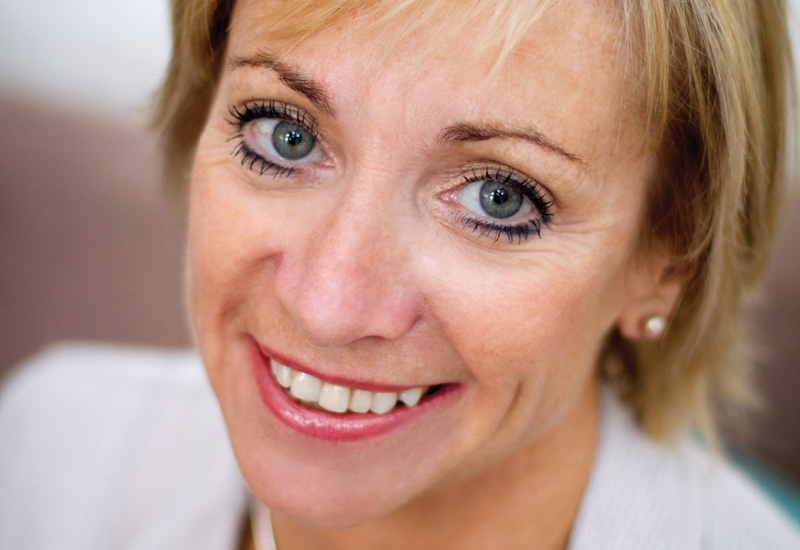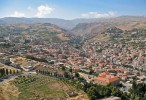Aromatherapy Associates co-founder Geraldine Howard, tells Louise Oakley why her personal health battle has excited her passion for the therapeutic benefits of essential oils
Geraldine Howard is one of the spa industry’s most renowned aromatherapy experts and a leading voice on the power of essential oils. Having trained in the 1970s under Micheline Arcier, student of aromatherapy founders Marguerite Maury and Jean Valnet, Howard went on to found Aromatherapy Associates in 1985 with business partner Sue Beechey.
The company now has more than 10 product ranges — including the famous Enrich, Anti-age and Renew — and Howard not only still comes up with unique blends but lectures on the benefits of aromatherapy worldwide.

| Advertisement |
Yet, even though she has been a staunch believer in the science of essential oils and their impact on the brain and body for more than 30 years, recent changes in Howard’s own health have excited this passion once more.
Last September, Howard was diagnosed with a cancerous tumour behind her right eye, which had to be removed and replaced. As if this wasn’t traumatic enough, she was told the cancer had spread and so became “lucky number 13” on a cancer vaccine trial underway in Holland.
The therapy is still ongoing, with Howard just a week away from starting her second bout of treatment when we meet at Grosvenor House in mid-July. The treatment is invasive and has a similar effect on the body to chemotherapy — white blood cells are extracted, treated and pumped back into the body to start fighting the cancer cells.
But Howard is upbeat, energetic and radiant when we meet; she doesn’t dwell on her illness, but instead explains how she has fought out of her “black hole” and opened up new aspects of her professional world.
“It’s been an interesting year to put it mildly. It’s sort of like a chemo when you’re going through it and I got as low as I have ever got, sick and in pain, totally wiped out, which consequently tends to make you feel pretty down,” reveals Howard.
“And I was feeling pretty low, I could cope with the eye being removed and replaced weirdly... I was back at the office 10 days after,” she recalls. “But I found the vaccine treatment just totally sapped everything out of you and you can’t function well. I thought, that’s why I make oils — to psychologically pick you up and make you feel better — and I think that’s why I talk about it now so much more passionately as I realise how valuable they can be,” she says.
“I trotted along to my little oil box and I thought I’m doing all these bespoke blends for someone else, I need to do one for myself — I nicknamed it my ‘black hole oil’. I felt like I was in this awful black hole, I didn’t know whether my life was over or what have you and was feeling absolutely rubbish.
What I found you needed was a big hug but also a lot of strength and focus — I looked at all our oils and I thought there isn’t really one that fits that bill so I created one and I took it to the office and everybody loved it, but I felt that it was something to give you strength.”
Howard is now planning to produce and retail this oil, which many in the industry have dubbed Geraldine’s oil, in order to promote both aromatherapy and raise money for the Dutch trial.
“There are so many people out there [that could use this] — not just for cancer and chemo, but when they lose a loved one, lose a child, lose a job,” says Howard. “It’s desperation I hate to say, on the edge of that precipice when you say ‘I think I’m about to fall in the hole’ or you feel like you’ve gone in and need something to psychologically pull you out. I created this fragrance that I hope people will find will work to pull them out.
“But then what I want to do is put part of the money to charity to raise money for the cancer vaccine. On the back of it the guys in Holland said they would come over to London and lecture to the British eye surgeon at Moorfields, whose really thrilled about it, so I’m on a mission.
It’s three fold: doing something to help people who have to go through horrors; secondly, hopefully it will show people how powerful aromatherapy can be; and thirdly, it can raise money to help,” asserts Howard.
“That’s what I hope. The thing that’s interesting, when you talk about oils and psychology, it means you can talk first hand because you’ve been there, you know what it’s like and you really do feel like you can try and help people which is what I’ve always wanted to do with oils, it’s what I set out to do. Weirdly, and hope to God I do get through it all, it’s kind of an accumulation of all my life’s work.”
Relating her experience to the business of spas, Howard believes that all spas could do a lot more to educate their clients as to the benefits of aromatherapy. Not only will it result in guests getting the best treatments possible — a massage that heals rather than merely relaxes — but the client will be more open to retail, even after a body treatment.
“People don’t want to book in for just a straightforward massage — they want it customised to them,” says Howard. “They want something individual to them and aromatherapy allows that by selecting oils to help whatever you feel your problem is that particular day.
“As aromatherapy’s grown it does sometimes get diluted and people forget the benefits it has because it’s become accepted that you have a pleasant smelling oil, but do people really think about the therapeutic aspects? They are massive. The more research that’s going on into wellbeing... everything starts with state of mind — it’s important how our brains are and essential oils have the power to affect our brain waves,” says Howard.
“You need to have something to affect the limbic system of the brain that will then help every aspect of your body — that’s what they do, they trigger responses in the limbic system. Through an aroma you can have a very profound effect on your physical state,” she asserts, speaking, no doubt, from her own inspiring experience.
Article continues on next page ...









 Search our database of more than 2,700 industry companies
Search our database of more than 2,700 industry companies










Aug 21, 2012 , USA
Ms. Howard's personal journey has brought her to the realization that people don't want straightfoward massages-they want it customized for them. She has hit the nail on the head; spa services should be customized, facials as well, for all ethnicities. Retail selling then becomes a natural exten...